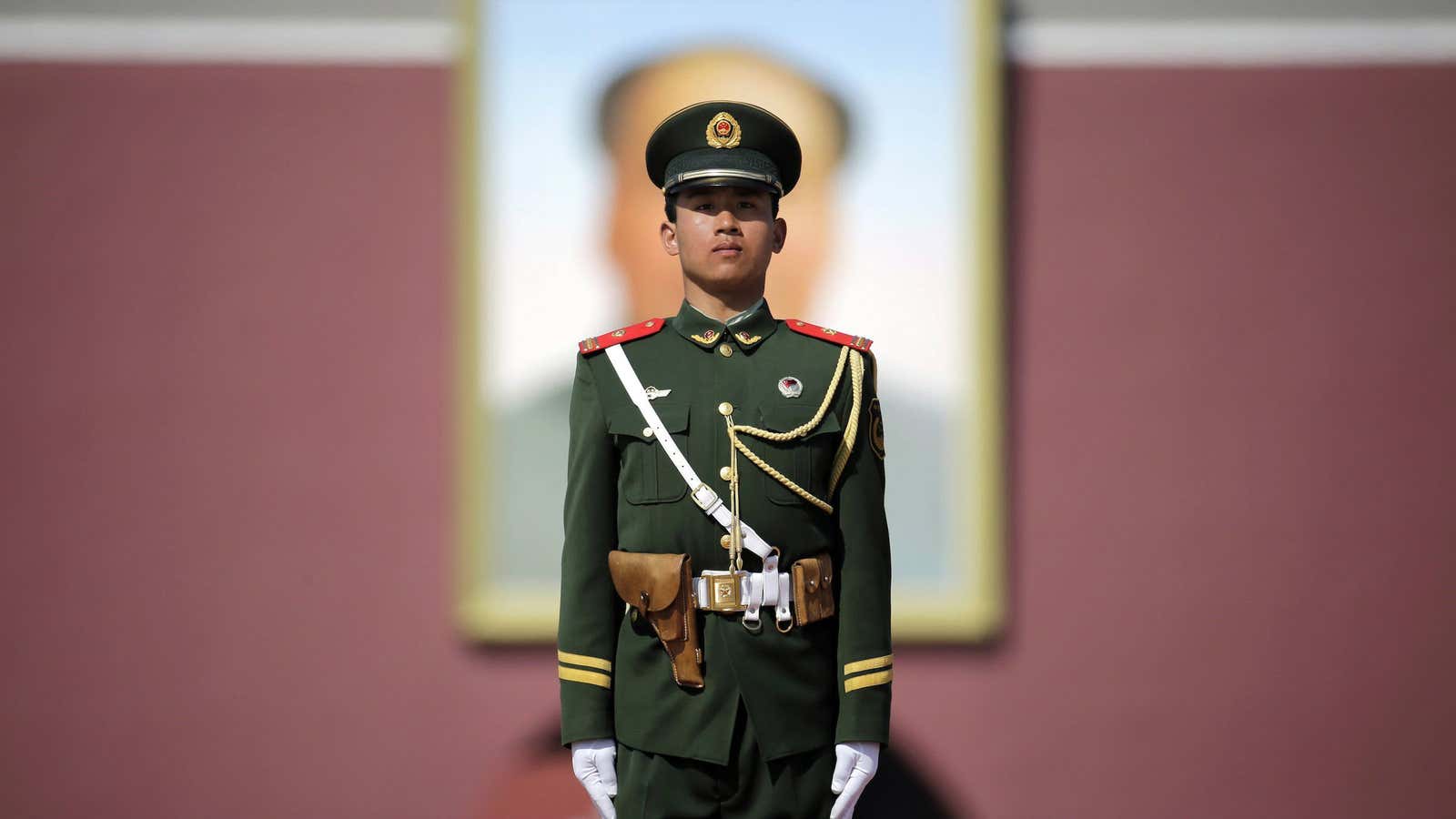China’s military says the internet has become its main ideological battlefield and that it should build a “Great Wall” online to protect the country’s citizens from “hostile Western forces.” A strongly worded editorial (link in Chinese) published in the People’s Liberation Army Daily on May said:
“If we don’t occupy the internet, someone else well. If we don’t defend this territory, we will forfeit it, which could even allow hostile forces to use it to attack our bridgehead…Hostile Western forces and a minority of ideological traitors within the country are using the internet to attack our Party, discredit China’s leaders, vilify our heroes… the goal is to use the concept of “universal values” to confuse us, to use “constitutional democracy” to bring us disorder, to use color revolutions to topple us, to use negative public opinion to overturn us.”
The PLA also called for corralling a “massive Red Army” of propaganda teams to defend the online Great Wall. It was unclear whether the military would like corporations and the government to take up that challenge, or Chinese citizens to do it on their own time. China’s internet censorship machine, nicknamed the “Great Firewall,” already has tens of thousands of government employees who scour social media websites and search engines for banned terms and discussions.
The PLA’s editorial is representative of the government’s growing paranoia over the role of the internet in Chinese society, where over 600 million internet users are increasingly finding ways around censors through virtual private networks (VPNs) and other services hosted abroad.
As a result, Chinese authorities are not just cracking down on VPNs and patching holes in the Great Fire Wall, but also sending a message to any potential online activists. On Friday evening, authorities released the indictment of the outspoken human rights lawyer Pu Zhiqiang, known for representing the artist Ai Wei Wei. Pu is being charged with ”inciting ethnic hatred” and ”creating a disturbance,” allegations based on posts he published on various online blogs. He has been detained for over a year.
More of these cases are likely if the current version of China’s new security law is implemented. The draft law establishes a vague definition of national security and cyber security that would allow authorities more leeway when it comes to prosecuting citizens for what they say online. According to the nonprofit group Chinese Human Rights Defenders, the law “provides a legal means for the government to further criminalize online expression and ratchet up internet censorship.”
